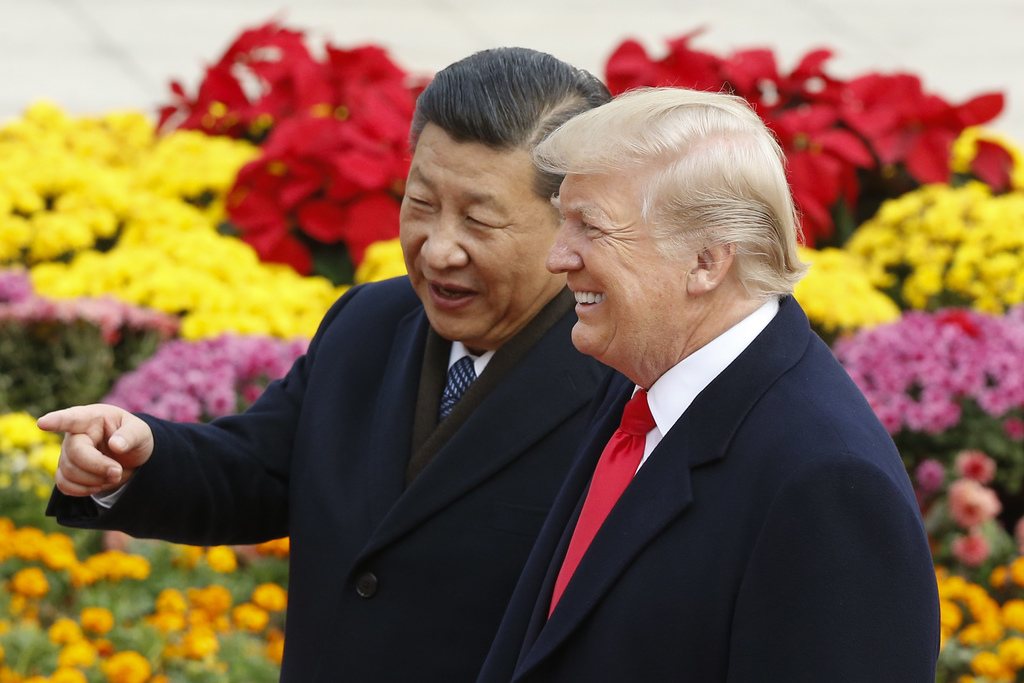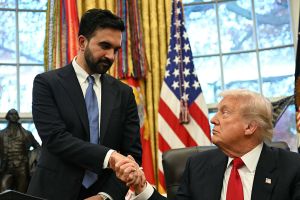It doesn’t happen often, but it happened this week: Republicans in Congress made it officially known that they disagree with their party leader, President Donald Trump, on an important issue of policy.On Thursday, the House Appropriations Committee voted unanimously to accept an amendment to the 2019 Commerce, Justice, and Science Appropriations Bill. That amendment, introduced by Democratic Maryland congressman Dutch Ruppersberger, forbids the Commerce Department from renegotiating the sanctions it enacted last month on Chinese telecom company ZTE.It’s a real reprimand of the president, who started sending tweets in support of the company on Sunday. “President Xi of China, and I, are working together to give massive Chinese phone company, ZTE, a way to get back into business, fast. Too many jobs in China lost. Commerce Department has been instructed to get it done!” Trump declared, leading to bewilderment across Washington. When did the “America First” president start caring about jobs in China, the country he’s repeatedly accused of screwing over the United States in trade? Had he given up his policy of “maximum pressure” on North Korea, one of the two countries ZTE was punished for doing business with? Had he become soft on Iran, the other country?The likeliest explanation was that Trump was giving up the goods on ZTE in exchange for something else from Xi Jinping. But what? Was it a concession coming as part of an agreement that would end the brewing tariff war between America and China? Was it a reward for help in taming Little Rocket Man, North Korea’s leader Kim Jong-un, whom Trump is scheduled to meet on June 12? (A former U.S diplomat told me, quite firmly, “Both.”) Trump’s further tweets, ostensibly meant to clarify matters, didn’t help. “ZTE, the large Chinese phone company, buys a big percentage of individual parts from U.S. companies. This is also reflective of the larger trade deal we are negotiating with China and my personal relationship with President Xi.” So Trump is willing to change government policy, above the objections of lawmakers and advisers in both parties, as a personal favor to his new pal Xi?Then, Wednesday, Trump sent a series of three tweets on the matter. “The Washington Post and CNN have typically written false stories about our trade negotiations with China. Nothing has happened with ZTE except as it pertains to the larger trade deal,” he wrote. “There has been no folding as the media would love people to believe, the meetings haven’t even started yet! The U.S. has very little to give, because it has given so much over the years. China has much to give!”Congress wasn’t convinced. A day later, that House committee voted unanimously in an attempt to ensure Trump couldn’t aid ZTE. Perhaps Christopher Wray’s testimony had something to do with it. On Wednesday, the FBI director spoke at a Senate Appropriations Committee hearing, warning lawmakers about ZTE—though he didn’t use the company’s name. “We at the FBI remain deeply concerned that any company beholden to foreign governments that don’t share our values are not companies that we want to be gaining positions of power inside our telecommunications network,” Wray said. “That gives them the capacity to maliciously modify or steal information, that gives them the capacity to conduct undetected espionage, that gives them the capacity to exert pressure or control.”ZTE is closely connected to the Chinese government. Intelligence officials at the CIA, FBI, and NSA have recommended the U.S. government not buy the company’s products, which are no longer allowed to be sold on U.S. military bases. Most media outlets have said that the Commerce Department slapped a seven-year ban on ZTE purchasing U.S. parts last month, which led the company to cease operations, because it violated sanctions by trading with Iran and North Korea. That’s not quite the full story, however. Commerce originally charged ZTE a $1.2 billion penalty for violating sanctions in March 2017. It upped the ante, adding a ban, last month because the company had reneged on its promises to come clean and punish those executives responsible for violating sanctions and then trying to cover up those violations.But it wasn’t simply selling some phones, made with American parts, to America’s enemies that got ZTE into trouble. ZTE, using American technology, built the murderous government of Iran “a powerful surveillance system capable of monitoring landline, mobile and internet communications,” as Reuters has reported. That system allowed the Iranian regime to clamp down on protests and, worse, jail and execute dissidents. This is not the sort of company that should be getting favors from the leader of the free world—especially if, as President Trump has said and Secretary of State Mike Pompeo reiterated just today on Twitter, the administration supports the Iranian people who are rising up across that nation to call for an end to its corrupt theocracy. President Trump, perhaps channeling Quentin Tarantino, ended one of his ZTE tweets by insisting, “But be cool, it will all work out!” Enabling the murderous mullahs who regularly chant “Death to America” isn’t cool, however. And letting such behavior go without punishment—punishment that came after careful consideration and has almost unanimous, bipartisan support—really wouldn’t be cool.
Trump’s ZTE talks have Congress wondering if he’s putting America first
Finally House Republicans are standing up to the president — and all it took was a Chinese phone company.

It doesn’t happen often, but it happened this week: Republicans in Congress made it officially known that they disagree with their party leader, President Donald Trump, on an important issue of policy.On Thursday, the House Appropriations Committee voted unanimously to accept an amendment to the 2019 Commerce, Justice, and Science Appropriations Bill. That amendment, introduced by Democratic Maryland congressman Dutch Ruppersberger, forbids the Commerce Department from renegotiating the sanctions it enacted last month on Chinese telecom company ZTE.It’s a real reprimand of the president, who started sending tweets in support of the company on Sunday….
























